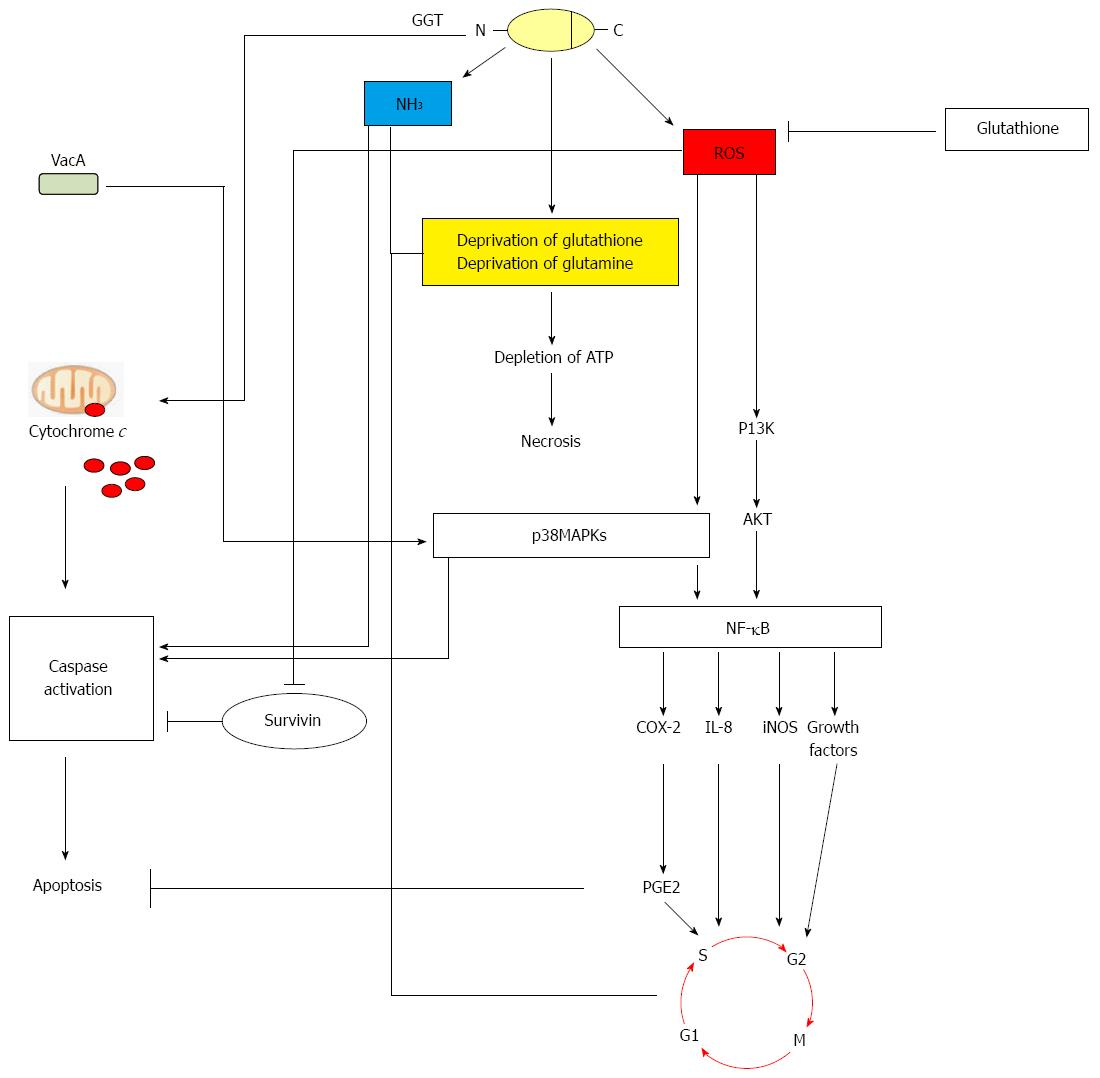Copyright
©2014 Baishideng Publishing Group Co.
World J Gastroenterol. Jan 21, 2014; 20(3): 630-638
Published online Jan 21, 2014. doi: 10.3748/wjg.v20.i3.630
Published online Jan 21, 2014. doi: 10.3748/wjg.v20.i3.630
Figure 2 Effects of Helicobacter pylori gamma-glutamyl transpeptidase on gastric epithelial cells.
Helicobacter pylori (H. pylori) gamma-glutamyl transpeptidase (GGT) causes consumption of mucosal glutamine and glutathione, production of ammonia and generation of ROS. These products induce caspase activation and apoptosis, ATP-depletion and necrosis, and cell-cycle arrest at G1-S phase in gastric epithelial cells. The effect of vacuolating cytotoxin (VacA) on caspase activation and apoptosis of gastric epithelial cells is also shown. H. pylori GGT may also inhibit apoptosis and induce proliferation through p38 MAPKs, AKT and NF-κB activation and subsequent COX-2, iNOS, growth factors and interleukin-8 (IL-8) induction. ROS: Reactive oxygen species; p38 MAPK: p38 mitogen-activated protein kinase; PI3K: Phosphatidylinositide 3-kinase; AKT: AKT kinase; NF-κB: Nuclear factor κB; COX-2: Cyclo-oxygenase 2; iNOS: Inducible nitric oxide synthase; PG: Prostaglandin.
-
Citation: Ricci V, Giannouli M, Romano M, Zarrilli R.
Helicobacter pylori gamma-glutamyl transpeptidase and its pathogenic role. World J Gastroenterol 2014; 20(3): 630-638 - URL: https://www.wjgnet.com/1007-9327/full/v20/i3/630.htm
- DOI: https://dx.doi.org/10.3748/wjg.v20.i3.630









